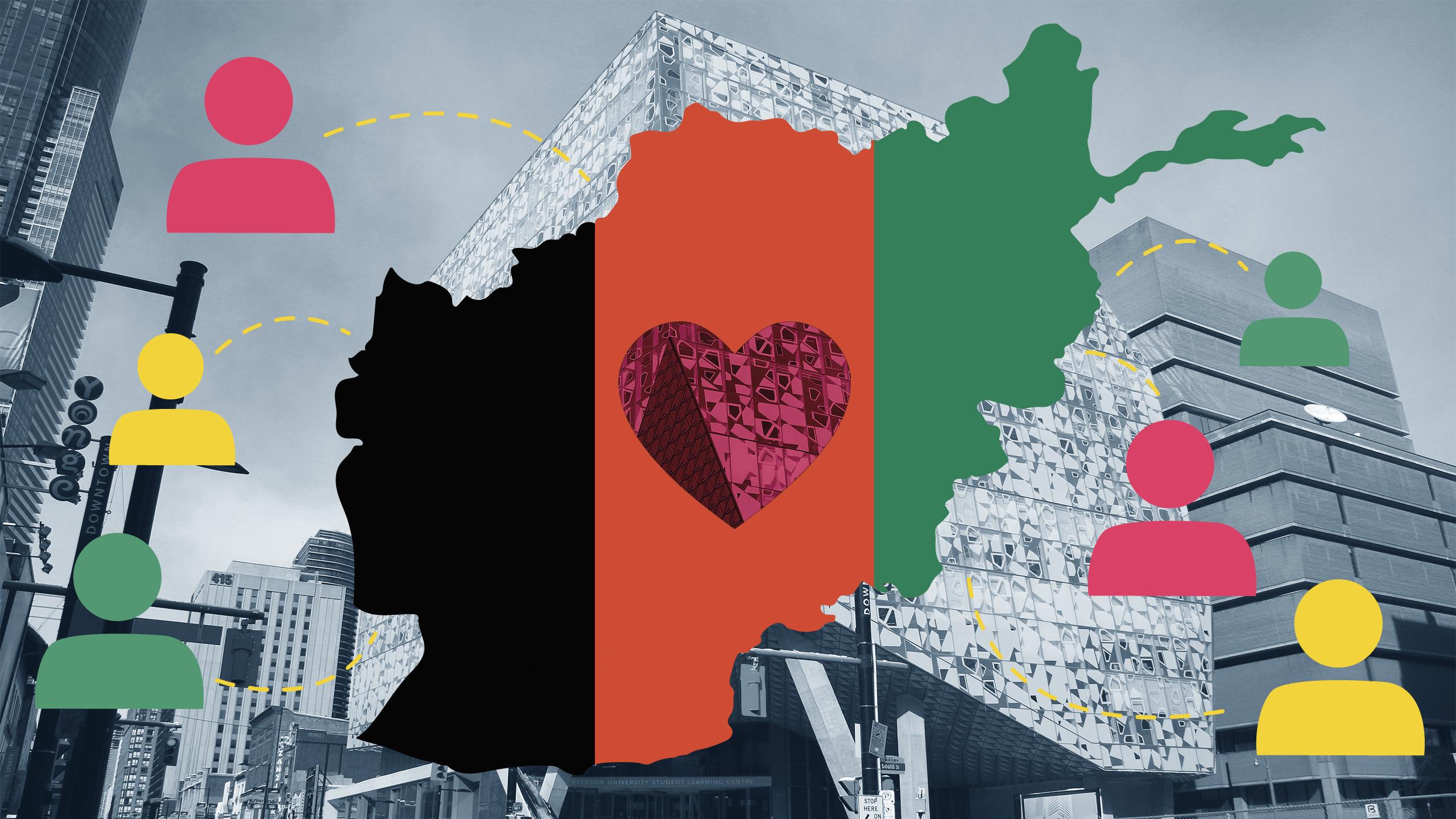By Megan Camlasaran
On the brink of a humanitarian crisis in Afghanistan leaving millions of people displaced, Canadians can help Afghan refugees resettle through sponsorship and foster an inclusive environment, according to experts of immigration and migration at Ryerson University.
In August, the Taliban took control of Afghanistan after foreign military forces withdrew from Afghanistan, causing thousands of deaths and displacing millions of people.
Canada has committed to resettle 20,000 Afghan refugees who are fleeing the country due to unfolding crisis, according to a statement released by the federal government on Aug. 13.
The federal government announced two special immigration programs to resettle Afghan female leaders, human rights defenders, journalists and LGBTQ individuals who have contributed to Canada’s efforts abroad, it stated.
Lifeline Afghanistan is a non-partisan organization that was recently launched in response to the humanitarian crisis in Afghanistan. It is supported by the Ted Rogers School of Management’s Diversity Institute.
The organization began working on employment, trauma-informed training and language skills training for refugees for months, but as the evacuation became a priority in August, they quickly switched their focus to humanitarian relief.
According to Lifeline Afghanistan, there are approximately 3.5 million internally displaced Afghans and an additional 2.2 million refugees and asylum seekers.
“This can still be heartbreaking for them, leaving their homes, their lives, their relatives and friends back in the country and having to start everything again from scratch here”
Wendy Cukier, director of Ryerson’s Diversity Institute and co-founder of Lifeline Afghanistan, said “coordination is challenging” at the moment because so many people want to help, which she said is welcomed and needed for settlement projects.
Sponsorship and taking legal responsibility for refugee families requires a lot of groundwork, as they need help finding housing, employment, education, healthcare and navigating transportation, said Cukier.
When Cukier was previously involved with Lifeline Syria five years ago, she saw different settlement agencies, community organizations, municipal governments and regular citizens come together to help ensure families get taken care of when they arrive in Toronto.
There have been thousands of volunteers for Lifeline Afghanistan, more than half of which are Canadian university students.
Anna Triandafyllidou, Canada Excellence Research Chair in Migration and Integration at Ryerson, said she foresees Afghan refugees would struggle to integrate into Canada as the stress of what’s happening in Afghanistan looms in the minds of Afghan-Canadians, especially those who still have close ties in the country.
“This can still be heartbreaking for them, leaving their homes, their lives, their relatives and friends back in the country and having to start everything again from scratch here,” said Triandafyllidou.
She said mental health support is necessary for both refugees coming to Canada and for Afghan-Canadians who are experiencing trauma or anxiety over their past and present connections to Afghanistan.
It’s not just supplies and money that are important but also befriending and mentoring individuals who need the extra support in a new environment, she added.
“Friendships are developed and I’ve seen struggle and survival, that makes you think about your own privilege. It opens up your eyes to other people’s lives in a different way”
Sponsoring families can be helpful and a rewarding experience, said Mehru Ali, an early childhood studies professor at Ryerson who sponsored Syrian refugees in 2015.
Ali is now working with students to sponsor an Afghan family by helping raise funds and finding them housing, transportation and education once they are safely in Canada.
“It is the most rewarding thing I’ve ever done in my life. Friendships are developed and I’ve seen struggle and survival, that makes you think about your own privilege. It opens up your eyes to other people’s lives in a different way,” she said.
Cukier said Lifeline Afghanistan is waiting for policies to change and sponsorship rules to be established for Afghan refugees.
In the meantime, Cukier is trying to secure a truck to pick up supplies for those who have recently arrived at the airport. She is looking for volunteer and expert translators who can speak Farsi and Pashto, Iranian and Persian languages.
“Students are key,” she said, adding that she understands that students are busy, but they can help “in little ways.”













Marzia
Hi how we can register for this sponsorship program
My brother is an engineer he flee with his wife and two kids to Pakistan how i can help them with this program